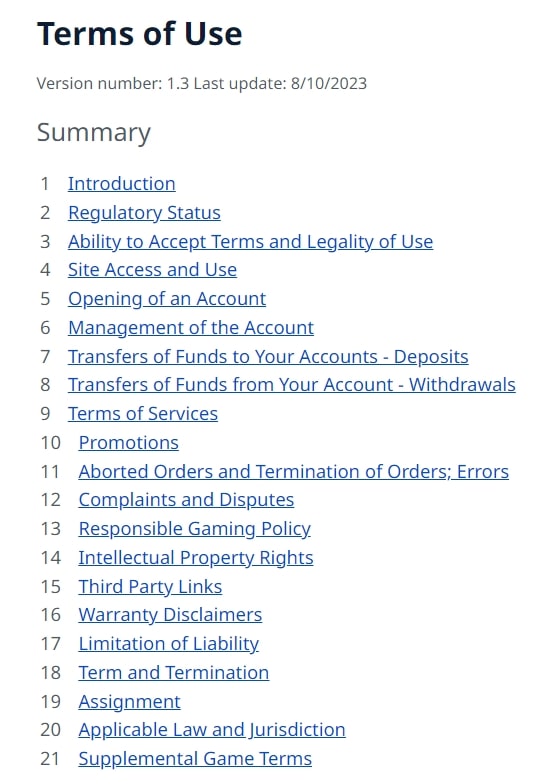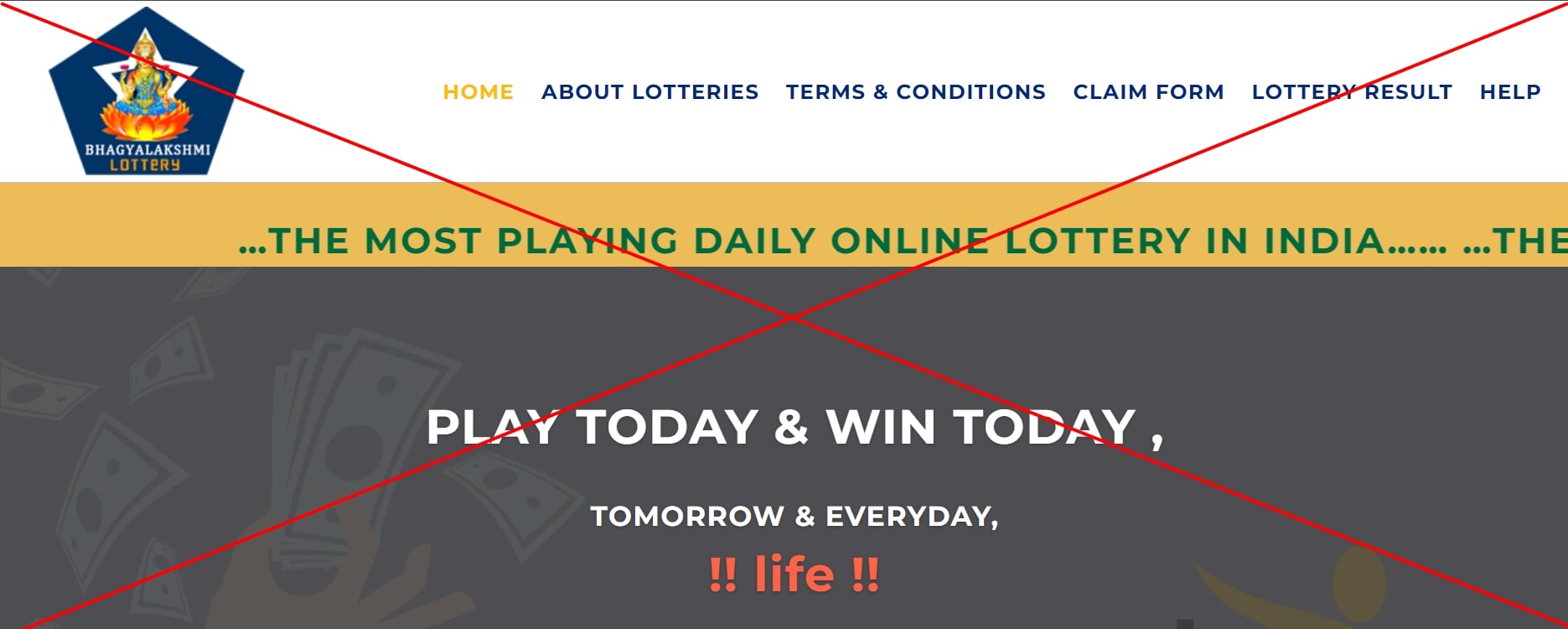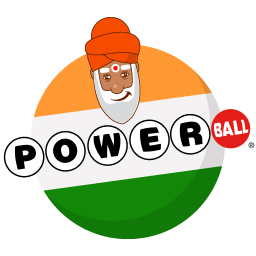The dream of having your life changed by a big money prize can turn into a nightmare if you are not alert for lottery scams. We collected the best tips on how to avoid lottery scams and fraud in India, so you never have to go through it. Also, for those who believe they have been scammed, we have brought essential information to help you recover your money.
8 Tips on How to Avoid Lottery Scams
The lottery is meant to be fun and safe, with the difficult odds being the only challenge we need to face. In order to make sure that is the case and that you never fall for lottery fraud in India, take note of our measures against it and how to recognize lottery scams.
Well-Established Rules and Regulation
Any real lottery scheme, due to its nature, must have well-established rules that determine its functioning, from the availability of tickets to the claiming of prizes. After all, it deals not only with the money of its players but also with huge amounts of money paid out as prizes.
Therefore, when encountering any lottery scheme in India in which you cannot find clear rules, stay away. It does not matter how tempting the game can be – scams are usually too good to be true – the lack of proper terms and conditions means it is not real.
Let’s take a look at a proper example from LottoSmile India, which we know to be a reliable site for buying lottery tickets online:
They have a thorough explanation of every aspect of the use of their website. Of course, the existence of well-established terms and conditions is not always a guarantee, but the absence of them is a definitive red alert. You may know more about the website above in our LottoSmile review.
Stick to Legal Lottery in India
In India, you have the option of sticking to your local government lottery or expanding your horizons with international lotteries. However, online lottery is legal when you play on websites that are not provided from the territory of India.
If a lottery is offered from our country, that is already against our local law. They explore the lack of information on how the lottery market works in India to attract unwarned players who think a third-party Indian lottery should be safer than playing international ones. Some examples of illegal lotteries found in India are the Chetak Lottery and the Bhagyalakshmi Lottery.
Credit: Bhagyalakshmi Lottery
Therefore, as long as you play the official lotteries – the Kerala Lottery, for instance – or online via licensed international websites that do not violate your state’s legislation – check out our theLotter review for an example – you will be fine!
Look for the Reputation
When it comes to a lottery, it does not matter if there are thousands or just tens of people playing for you to become a winner. It is unlike bingo, for example, in which a player can win and finish the game before you do. It is all about matching a certain combination, and that is why there is no point in being eager to play a lottery that nobody knows yet.
More importantly, if there is no reputation or feedback to rely on, like winners’ stories in the media, you are at a considerable risk. Once more, people tend to fall for lottery scams because they look only at the possible prize and odds instead of looking for signs of reliability.
If there is no established and good reputation to rely on, stay away from those possible lottery frauds. The best option is again to play local official lotteries or to participate in international lottery sites with years of operation. We have a complete guide on why it is safe to buy international lottery tickets online, or you may also go straight to our LottoAgent review.
Never Send Money to Anyone
You buy lottery tickets via a fair and encrypted system online or with a licensed retailer in your city. Those are the only two ways of putting your money into anything related to the lottery, period. If you are directly requested to send money to someone specific to participate in a lottery, do not fall for that scam.
Also, there is no charge to receive your winnings. All deductions related to lottery taxes or choosing a lump-sum payment are automatic and made before you receive the prize! Therefore, you never need to pay anyone after you buy your tickets.
Drawings You Never Participated In
Everyone wants to wake up one day and figure out they have won a large sum in the lottery. However, that is only possible when you actually participate in a scheme. If you ever get a notice or anything stating that you have won a prize when you never enrolled in that game, that is definitely a lottery scam sign.
It does not matter how hard you want to believe that you received a blessing or that someone played for you. It is definitely a sign of a lottery scam that you must avoid at all costs – literally.
Know Your Odds
When it looks too good to be true, that is often the case. If we look at the odds of hitting the jackpot in a Powerball drawing, with chances of 1 in 292 million, that is clearly not an easy task. Even if we consider a relatively easy lottery, like Jhatka Matka, the prizes are way lower to balance the better chances of winning.
Therefore, whenever it looks like you could become one of the next lottery winners in India in an easy way, that is a red alert. That balance between risk and profit is not only how lotteries are made but also how they keep functional. Keep away from anything that sounds too easy, and notice how they will also combine one or more of the other warning signs listed here.
Look for the Warning Signs
We can be blinded by promises of easy money, which is why staying alert for red signs is essential to avoid lottery scams in India. They are everywhere and can get to you on the streets, online, or via a phone call or message.
If you have any suspicion of the veracity of the lottery scheme, there is a good chance it is a scam.
Read Our LottoBaba Guides
Information is the key to keeping yourself away from lottery fraud and cams, especially on the internet. Here at LottoBaba, we explain everything there is to know about online lottery in India, how to keep up with real lottery results, and even alerts about illegal lotteries like the Delhi Dhamaka lottery.
With that knowledge, you will be shielded against lottery fraud. Of course, aside from learning more about lotteries in general, use our tips here to learn how to avoid lottery scams in India.
The 5 Most Common Lottery Scams to Avoid
Now that you are versed in the art of avoiding lottery scams in India, we want you to familiarize yourself with the most common fraud schemes in our country. You might already have encountered at least one of them, and they are a full collection of the warning signs we talk about here.
Telephone Calls on Unknown Winnings
This lottery scam is really common and usually aimed at older people who are used to a time when that type of thing could have been more common. Regardless of whether you play the lottery or not, the charlatans call you, telling you that you have won a prize.
The problem is when you receive a call claiming that you are a winner of a game that you never played! When you do play the lottery, you may just ignore the phone call and go check for yourself. Nowadays, you can just open our page to check the latest Goa lottery results, for example, and verify that you are an actual winner.
Whenever you do not recognize the lottery in which you allegedly are a winner, ignore it entirely. They are most probably trying to get data or money out of you for a prize that never existed.
Transfer Money to Receive Your Prize
Another very common lottery scam in India is to be asked to transfer a certain amount of money to be able to receive your prize. It is often a second stage of the scheme in which you are told that you are a winner of the lottery without playing it. However, people who figure out you are an actual lottery winner may also try to contact you to apply this scam.
They may claim that you need to transfer the amount connected to lottery taxes or to cover administrative fees. That does not exist in any lottery, so make sure to take that into account and ignore any message or call with that intent.
Selling Winning Tickets
A person wins the lottery, but unfortunately, there is some issue that prevents them from claiming the prize. Surprisingly, you could pay a small amount to buy that winning ticket from them and keep the big prize for yourself. There are two major problems with that approach.
The first problem and the most important one is that selling lottery tickets is illegal, except for licensed retailers in the case of brand-new tickets and not winning ones after the drawing. Therefore, selling or buying lottery tickets out of that margin is risky enough.
Also, not being naive, we all know that nobody who wins the lottery will be selling the ticket. There is no point in that, and it is an obvious lottery scam you should avoid.
Unlicensed Sweepstakes
Sweepstakes are somewhat simpler than lotteries in both structure and prizes. However, it is still necessary for them to be licensed and operated legally. That is the only way to ensure that they are regularized and fair. Otherwise, you risk playing a game that is rigged and already has a result that does not favor you.
Always participate in legalized and regularized games, regardless of whether it is a lottery or a simple sweepstake.
Phone SMS or Social Media Direct Message
While it may seem obvious to some people that a lottery will never drop you an SMS or direct message on social media, it is important to be alert about that scam in India. The supposed reasons could be many, from requesting money to pay a prize or “checking” your personal or financial data.
In all cases, you are not being contacted by a real lottery staff or the official lottery from your local government. Instead, it is a random scammer trying to find his next victim.
What to Do If You Are a Victim of Lottery Scams?
If you are a victim of a lottery scam, regardless of it being listed here as a possible fraud, this is the preferred course of action:
- Make a copy of whichever form of contact you had with the scammer: messages, recorded phone calls, emails.
- Take copies of your photo ID and proof of address that match your bank’s.
- File a complaint at the nearest Police Station with as many details as possible about the incident.
- Register the fraud at the local cybercrime organization with all of the above.
- Contact your bank with the registered complaints above requesting a money refund.
If your scam involves the provision of passwords or information on bank accounts, make sure to block your cards and change the password as soon as possible. Otherwise, there is a greater risk of losing even more money.
Can You Recover Money From Lottery Fraud?
It is possible to recover money lost due to lottery scams, but that relies on providing the police with enough proof and counting on your bank. If everything looks legit and your bank does not give you trouble in terms of refunding the money you sent yourself, there is a good chance you will recover your money from lottery fraud.
However, that is not a guarantee. Therefore, do what you can if you are a victim of lottery scams, but make sure to understand our tips to avoid them at all costs!
FAQ
Check if it is a licensed and reputable lottery. Ask your friends if they know it and people who have won, and more importantly, go away if they ask for sensitive information.
Contact your bank to know their standard procedure, but make sure to have proof of what happened and file a police complaint as soon as possible.
Legit lotteries are either provided by your state or licensed international lottery sites with years of operation and are approved in our reviews.
No, you will never be asked for money, not even for tax purposes, if you win the lottery.
Inform the police and the local organization against cybercrimes so that they may take action and make sure not to get involved.
You might receive a phone call, but that should at most inform you of the prize that you may claim at an official address. Never provide any details, not even your personal information.





